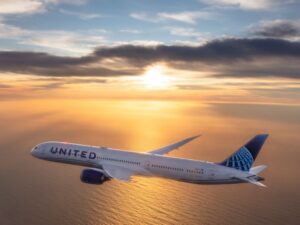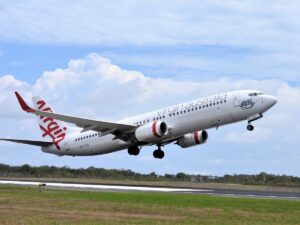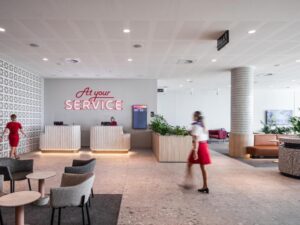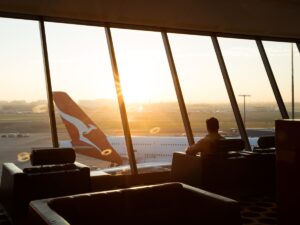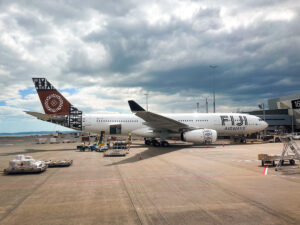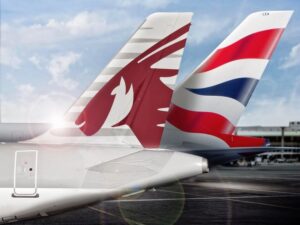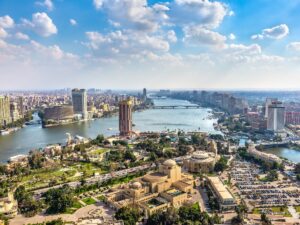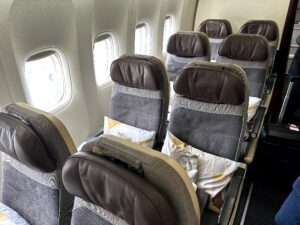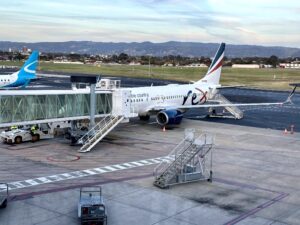
There was so much potential.
For more than a year, Bonza graced Australia’s skies with fun, friendly and affordable air services that were particularly valuable to the regional communities it served. The on-board service was excellent and the company had a great culture. Most people who flew with them will agree it was a pleasure to fly with Bonza – assuming your flight actually departed on schedule.
From Air Australia to OzJet, Ansett to Tigerair, Australia has unfortunately had its fair share of failed airlines. It’s a tough market to crack, especially when the two major incumbent airlines are so dominant. But instead of taking on Virgin, Qantas and Jetstar head on, Bonza tried something completely different.
Bonza’s model had never been tried before and in many ways, it provided a breath of fresh air. What other airline sold budgie smugglers or hotdogs described as a “snag in a bag” on board their flights? What other airline has experimented with flying from Newcastle or Toowoomba to Airlie Beach – and at very low fares?

Sadly, Bonza yesterday had to cancel all its flights amid reports its aircraft were being repossessed. Hours later, the company entered voluntary administration.
So, what went wrong?
Contents
Bonza is now in voluntary administration
As of last night, Bonza was maintaining that this was only a “temporary suspension” of operations. The airline had so far only cancelled flights until Thursday. At 8 pm last night, Bonza posted the following statement on its website:
Bonza has temporarily suspended services due to be operated between Tues 30 April, Wed 1 and Thur 2 May, as discussions are currently underway regarding the ongoing viability of the business. We apologise to our customers who are impacted by this and we’re working as quickly as possible to determine a way forward that ensures there is ongoing competition in the Australian domestic aviation market.
Even if Bonza is able to find a way to resume flying from Friday, it’s hard to see a long-term future for an airline that has unfortunately developed a reputation of unreliability.
A lot of people will avoid booking tickets with them following yesterday’s news, which would mean the company wouldn’t have enough cash flow to continue operating as a viable airline. It’s not impossible, but it’s very hard to see Bonza making a comeback from here.
Hundreds of Bonza “legends” (that’s what the company called its staff) will now need to look for new jobs. This could be particularly challenging for the many crew who live in Maroochydore or Noosa, as no other airline is based at Sunshine Coast Airport. They’ll need to either commute to Brisbane Airport from now on, or find employment in a different field.
Bonza’s unique business model
A lot of commentators have questioned the airline’s business model itself, suggesting it was doomed to fail from the start. They say that there simply wasn’t enough demand to profitably fill expensive 186-seat jets on regional routes like Melbourne-Port Macquarie.

Critics would say there is a reason no other airline served 30 of the 36 domestic routes Bonza was flying. But Bonza wasn’t trying to compete with other airlines. It was trying to generate new demand from customers who would otherwise drive – or not travel at all. If it also happened to pick up a few business travellers who would have otherwise booked a connecting itinerary with another airline, that was a bonus. But the business model wasn’t reliant on that.
This model of stimulating new demand has been tried and tested in many other markets. This includes Kazakhstan where Bonza’s CEO Tim Jordan launched a very successful budget carrier called FlyArystan.
Bonza was also quite successful in stimulating demand on a number of the routes it flew, such as Albury-Gold Coast, Mildura-Sunshine Coast or Maroochydore-Mackay.
There were some routes that didn’t work out, such as Coffs Harbour-Maroochydore. However, while it was probably a factor, I don’t think we can completely write-off the business model itself as the sole cause of Bonza’s failure.
Bonza’s app-only strategy
In my opinion, Bonza’s app-only sales strategy was a big mistake.
Bonza decided that it would be a good idea to shun traditional sales channels. Instead, until last month, it only sold tickets through its Fly Bonza app and through selected bricks-and-mortar travel agents in regional towns.
Last month, Bonza finally started selling tickets on its website – which, by the way, didn’t even have a map of the routes the airline flew.
The problems with this were two-fold. Firstly, some people – particularly older Australians – simply didn’t want to book on a smartphone app. Secondly, many people who may have actually booked with Bonza simply didn’t know their services existed.
Because Bonza flights didn’t appear anywhere online, they also didn’t show up on Google searches or in Google Flights. For example, if you searched on Google for flights from Rockhampton to Townsville (back when Bonza served this route), you would only see connecting flights via other cities:

At the time we took the below screenshot, Bonza was selling flights between Rockhampton and Townsville for $29. Qantas and Virgin wanted more than 10x that price for a longer connecting journey. But unless you downloaded the Fly Bonza app, you probably wouldn’t have known.

As of this week, Bonza flights do actually now appear in Google searches – albeit with the logo of airberlin, a former German airline that also used the “AB” IATA code.

Bonza’s CEO explained to Australian Frequent Flyer last year that its app-only strategy was to ensure it could communicate directly with customers.
“We need to be able to communicate very effectively when things go wrong. It’s not the good times that are going to define us, it’s actually the bad times. It’s when things are running behind schedule when we need to contact customers that is most important for us and very important for the customer,” Jordan said.
“The app allows us to do that without going potentially through an intermediary. And we will have 100% confidence that we have communicated a schedule change or a change to somebody’s travel plans.”
I don’t think there was anything wrong with encouraging people to use the Fly Bonza app. But I don’t think this should have been instead of selling flights through traditional sales channels. Whether Bonza wants them to or not, many Australians still use websites like Webjet or Expedia to plan and book their travel. Bonza flights just weren’t showing up in the places where many potential customers were looking.
Operational reliability
When Bonza first launched operations, it deliberately kept an operational spare aircraft at its Sunshine Coast base so that it could recover quickly if a plane needed unscheduled maintenance.
Since it only had four planes, operational reliability was always going to be a big risk. But at the start, this strategy ensured Bonza didn’t suffer any major operational meltdowns – and the negative publicity that comes with that.
Unfortunately, planes parked on the ground don’t make any money. As Bonza expanded its operations and opened a second base in Melbourne, its fleet utilisation increased – as did the delays.
In August last year, Bonza announced plans to open a third base at Gold Coast Airport. It would do this using planes operated by Flair, a Canadian ultra-low-cost carrier owned by 777 Partners, the same owner as Bonza.
Unfortunately, Bonza wasn’t able to get the Flair jets certified by Australia’s aviation safety regulator before the date that Bonza had planned to launch services. This resulted in Bonza being unable to operate a lot of the flights it had sold tickets for. In December 2023, just 52.6% of Bonza’s scheduled flights departed on time and 19.4% of flights were cancelled.

I do think Bonza had good intentions. It wasn’t deliberately trying to screw customers and to his credit, Jordan was upfront about these issues at the time. He even agreed to an interview on A Current Affair to explain what was going on. Either way, the company was not prepared for the delayed entry into service of those Flair aircraft.
To try to improve its operational reliability, Bonza also leased a plane from Nauru Airlines. This limited the cancellations for a while, but resulted in a confusing passenger experience… and wet-leasing jets from third-parties is not cheap.
In hindsight, such a quick expansion into new routes and markets was probably a mistake.
Reputational damage
Bonza provided a valuable service to a lot of regional centres, connecting them to places they couldn’t otherwise reach with affordable, direct flights.
One of the good things about regional communities is that people talk. I remember visiting Maroochydore when Bonza first launched, and there was genuinely a Bonza buzz around town. I was there because I wanted to take a flight with Bonza, and a lot of the locals I spoke with were genuinely interested to hear about my experience with the airline. Bonza got a lot of free advertising through word-of-mouth in the towns it flew to.
One of the problems with regional communities is also that people talk. When people started having bad experiences with Bonza, the news would have quickly spread.
Bonza got a lot of bad publicity when people who had booked tickets to places like Mount Isa missed out on spending Christmas with their families. Or were forced to shell out thousands for last-minute replacement flights on other airlines. That shemozzle – to use a word that would probably make it into the Bonza glossary – lost the airline a lot of goodwill.
Since then, there have been countless stories from Bonza customers who’ve had flights changed at the last minute, couldn’t get basic customer service or waited months for refunds.
One customer wrote on Reddit that Bonza had cancelled their flight from Gold Coast to Mackay, and replaced it with a flight from Sunshine Coast to Airlie Beach. Bus connections would be provided between the different airports. If they didn’t like the new flight, they could request a Bonza credit.
Over recent weeks, Bonza has run multiple sales offering cheap fares as low as $39 one-way. But once more and more stories like this began to emerge, and the rumour mill swirled with speculation that Bonza was in financial difficulty, this must have impacted forward bookings. And therefore, cash flow. It’s a vicious cycle.

The airline’s owner
There have also been some questions about the airline’s owner, and whether it had set up Bonza to fail for its own financial gain. I don’t personally have an opinion on this, but you can read more about this theory here.
According to the Australian Financial Review, Bonza’s aircraft had been 49% owned by 777 Partners and 51% by AIP Capital. On 9 April 2024 – just three weeks before Bonza entered voluntary administration – AIP Capital transferred ownership to a new affiliated company called Phoenix Aviation Capital. The Sydney Morning Herald reported that the planes have now been repossessed by AIP Capital, which is owned by the parent company of 777 Partners.
Bonza did do some things right
It would be unfair to say that Bonza only made mistakes. They did do some things very well, including the in-flight experience.
Its strategy of negotiating deals with airports and avoiding middlemen helped to keep costs low.
Gimmicks like budgie smugglers helped to generate a lot of free publicity.
And to their credit, Bonza’s “legends” including their pilots were highly skilled professionals who didn’t compromise on safety. There has not been any notable safety incident involving a Bonza flight in the 15 months the airline was operating. It was a safe airline with high standards.
Although some have criticised its route network, I also think it was smart not to pick a fight with any of Australia’s existing airlines. In the past, we saw Qantas drastically cut airfares in response to new competition from Strategic Airlines (which later rebranded as Air Australia). This was a short-term win for consumers but ultimately drove its much weaker competitor off the route. It later went out of business.
Bonza did not go after Qantas, Virgin or Jetstar routes, and (unlike Rex) never publicly criticised its rivals. By staying under the radar, the incumbent airlines never really saw Bonza as a threat.
AirAsia used a similar strategy when it introduced ultra-cheap flights out of Kuala Lumpur. It was worried that Malaysia Airlines could crush the start-up if it perceived AirAsia to be a threat. So, AirAsia kept a low profile until it was big enough to survive such an attack.

So, what now?
We’ll find out in the coming days and weeks if there is a future for Bonza in Australia, or if voluntary administration will be the end of the line.
In the meantime, Virgin Australia, Qantas and Jetstar have announced they will provide free flights to stranded Bonza customers. If you’re at the airport and your Bonza flight has been cancelled, you can approach a staff member from any of these airlines. All of the airlines have also said that customers can call up to discuss their options. That said, one AFF member who called Qantas yesterday said the Qantas call centre didn’t know anything about Bonza.
Jetstar and Virgin Australia have also invited Bonza staff to discuss career opportunities with them.

If you have an upcoming flight booked with Bonza, it might be best to wait a few days and see what happens with the airline. But if it becomes clear that your flight will not operate, and you can’t get a refund in any other way, a credit card chargeback could be an option of last resort to get your money back.
In the medium term, Australia’s remaining airlines could potentially pick up some of Bonza’s most successful routes. Bonza has demonstrated that there is a market for routes like Sunshine Coast-Cairns, Mildura-Sunshine Coast, Albury-Gold Coast, Gold Coast-Townsville or Melbourne-Bundaberg.
Maybe Jetstar or Virgin will take over a few of the best-performing routes. But it’s unlikely we’ll see another airline try to replicate Bonza’s model or complete route network for some time – if ever. That’s a loss to regional Australia and the Australian tourism industry.
Join the discussion on the AFF forum
The latest news about Bonza has generated a lot of discussion on the Australian Frequent Flyer forum.
What do you think Bonza did right? What could it have done differently? Will you miss flying with what is likely to be the most Aussie-branded airline to ever exist? Let us know your thoughts on the forum…
